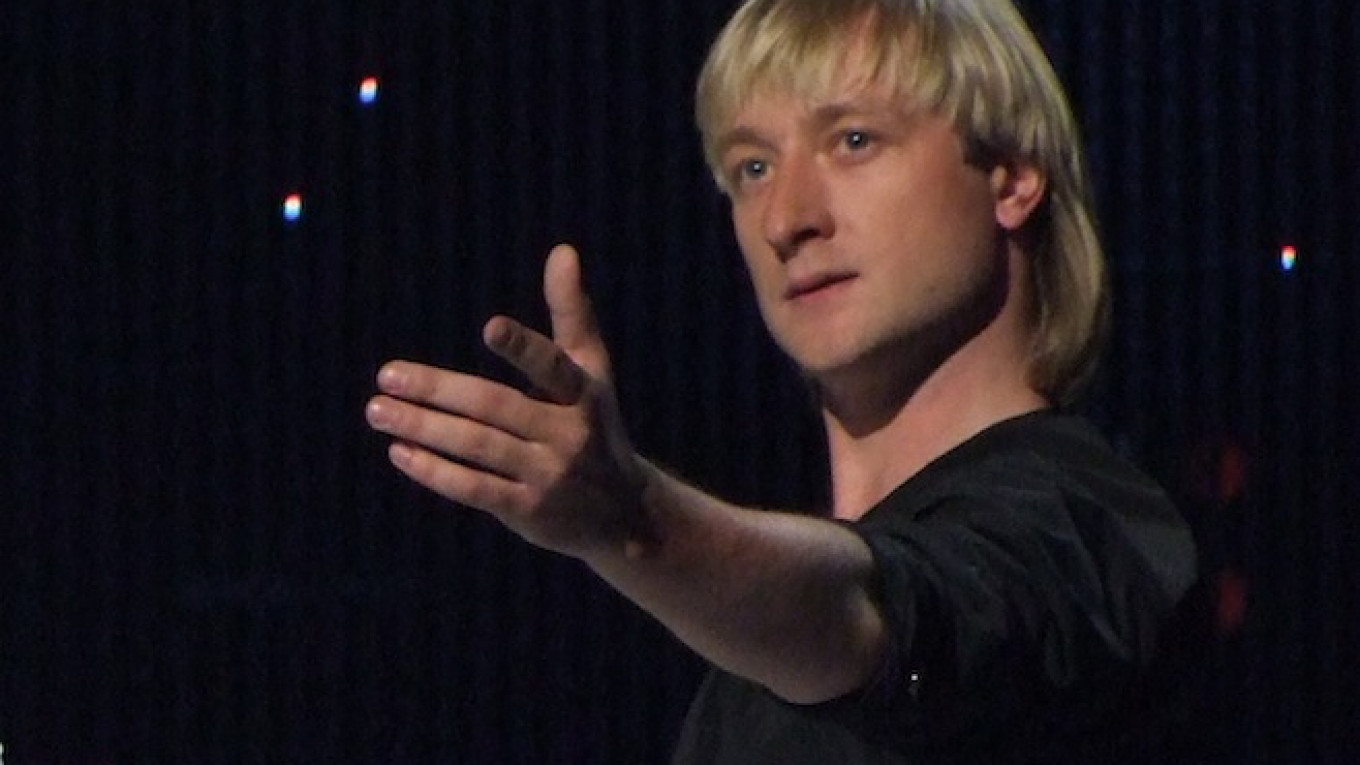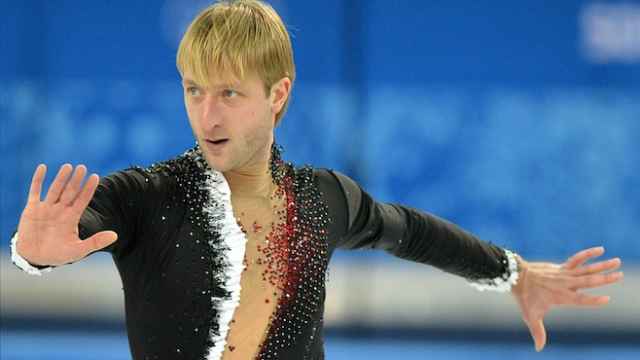Russian figure-skating champion Yevgeny Plushenko has been tasked with developing an original curriculum for teaching physical education in Russia, the Education Ministry said Thursday.
"It is important that schoolchildren are enthralled by great coaches and athletes they all know, and that they take up new and interesting sports," Education Minister Dmitry Livanov was quoted as saying by the TASS news agency.
Plushenko, a four-time Olympic medalist, will join the likes of Irina Viner-Usmanova, the president of the country's rhythmic gymnastics federation, among athletes who have developed physical education programs in Russia.
Livanov, who was speaking at a meeting of the presidential council on sports development, did not provide a timeline for the completion of Plushenko's curriculum, nor did he specify when it could come into force.
President Vladimir Putin, who was present at the meeting, announced that Russia would spend 73.9 billion rubles ($1.85 billion) on its national physical education and sports development program between 2016 and 2020 — an amount that will likely support the implementation of new pedagogical programs and the modernization of sporting equipment, state-run news agency RIA Novosti reported.
By 2020, the country hopes that at least 40 percent of the population will regularly engage in physical activity. The figure currently stands at 27.5 percent, Putin was quoted as saying by the Interfax news agency.
Plushenko, who is also a three-time figure-skating world champion, announced his retirement after the Sochi Olympics earlier this year before backtracking on his decision.
While this will be his first time devising an educational curriculum, the 31-year-old has helped students in the U.S. learn the basics of physics, after a U.S. textbook featured his spins and jumps to illustrate rotational movements.
A Message from The Moscow Times:
Dear readers,
We are facing unprecedented challenges. Russia's Prosecutor General's Office has designated The Moscow Times as an "undesirable" organization, criminalizing our work and putting our staff at risk of prosecution. This follows our earlier unjust labeling as a "foreign agent."
These actions are direct attempts to silence independent journalism in Russia. The authorities claim our work "discredits the decisions of the Russian leadership." We see things differently: we strive to provide accurate, unbiased reporting on Russia.
We, the journalists of The Moscow Times, refuse to be silenced. But to continue our work, we need your help.
Your support, no matter how small, makes a world of difference. If you can, please support us monthly starting from just $2. It's quick to set up, and every contribution makes a significant impact.
By supporting The Moscow Times, you're defending open, independent journalism in the face of repression. Thank you for standing with us.
Remind me later.






